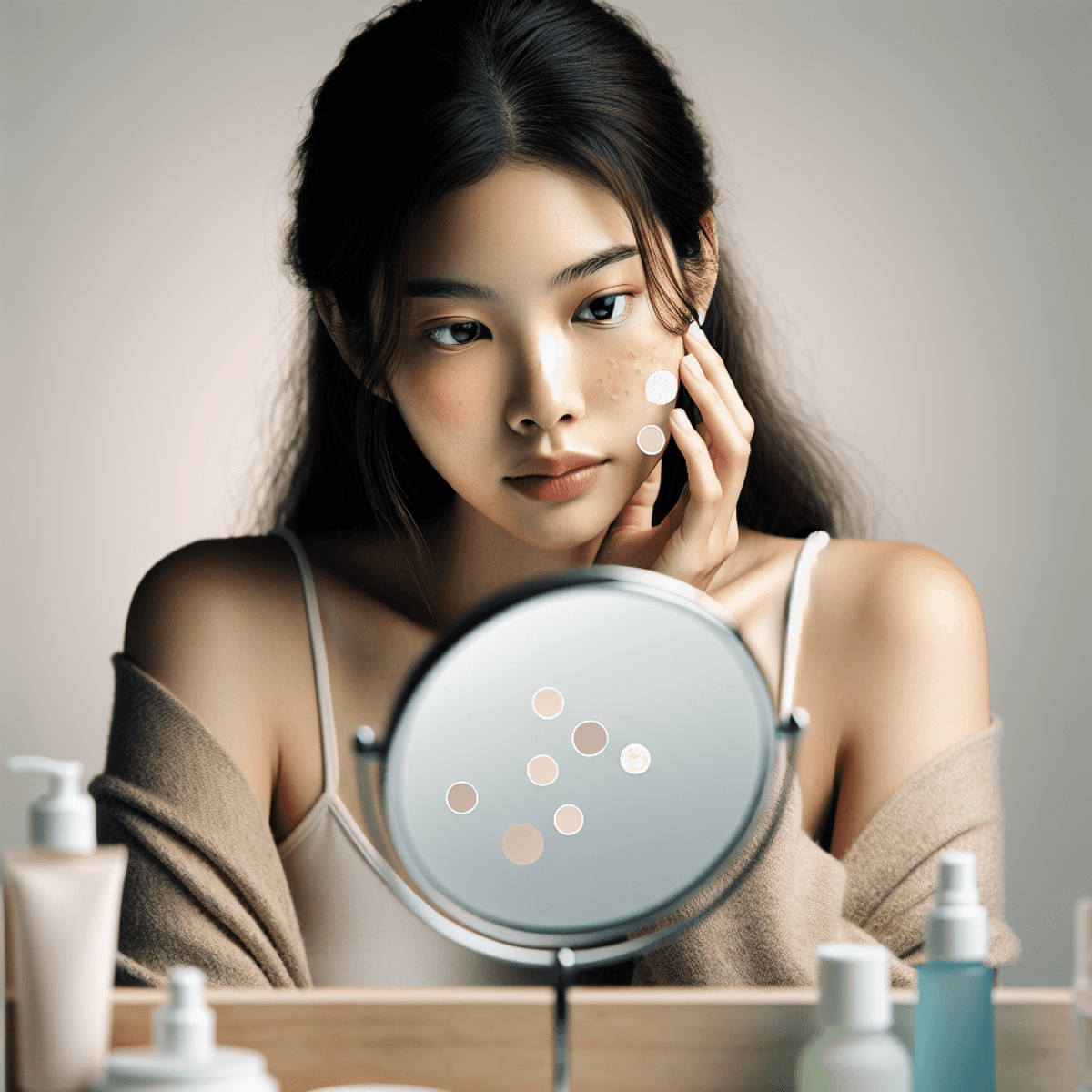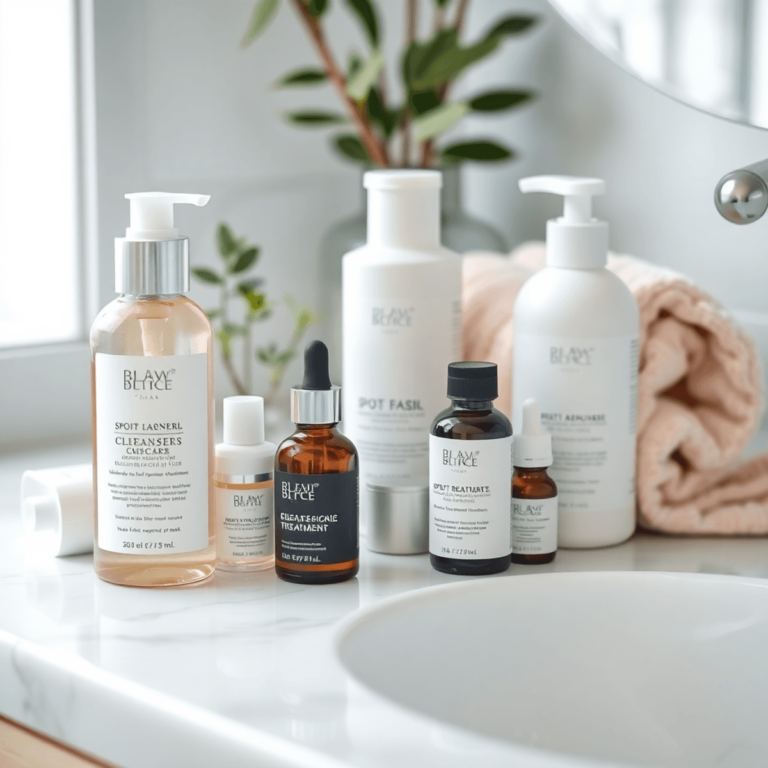Acne & pimples: treatment & prevention

Introduction
Acne and pimples are common skin conditions that can affect individuals of all ages. These issues primarily appear on the face, neck, shoulders, back, and chest, causing discomfort and impacting self-esteem. Understanding both treatment and prevention methods is essential for effectively managing these conditions.
Why Treatment & Prevention Matter
Effective management of acne involves a combination of treatment and preventive measures. Treatments often target existing breakouts, while preventive strategies aim to reduce the likelihood of new pimples forming. Recognizing the importance of both aspects helps individuals maintain clearer skin and avoid potential scarring.
Prevalence of Acne
Acne is particularly common among teenagers and young adults. Statistics show that about 80% of people aged 11 to 30 experience mild to moderate acne at some point. Despite its association with adolescence, acne can persist into adulthood, affecting mental health due to its visible nature.
By understanding these elements, you can better navigate your journey toward clearer skin.
Understanding Acne and Pimples
Acne is a long-term skin condition that shows up in different ways like pimples, blackheads, and whiteheads. These spots can show up on your face, neck, shoulders, back, and chest.
Different Forms of Acne
1. Pimples (Papules and Pustules)
- Papules: Small red bumps that may feel tender.
- Pustules: Red pimples with a white or yellow center filled with pus.
2. Blackheads and Whiteheads
- Blackheads: Open comedones where the oil and dead skin cells oxidize, turning them black.
- Whiteheads: Closed comedones that remain under the skin and appear as small white bumps.
Primary Causes of Acne
Several factors contribute to acne formation:
- Excess Oil Production (Sebum): Sebaceous glands produce an oily substance called sebum. When produced in excess, it can clog hair follicles.
- Dead Skin Cells: Accumulation of dead skin cells within follicles mixes with sebum, forming a plug.
- Bacteria: The bacterium Propionibacterium acnes (P. acnes) thrives in clogged follicles, leading to inflammation and infection.
These factors combine to create an environment conducive to acne breakouts.
Hormonal Changes and Acne
Hormonal fluctuations play a significant role in exacerbating acne:
- Puberty: During puberty, increased androgen levels stimulate sebaceous glands to produce more oil, making teenagers particularly susceptible to acne.
- Menstrual Cycles: Hormonal variations during menstrual cycles can trigger acne flare-ups in many individuals.
Understanding these underlying causes is essential for managing your skin health effectively. Knowing how to get rid of pimples involves addressing these root causes through targeted treatments and preventive measures.
Treatment Options for Acne
1. Over-the-Counter Treatments
Acne treatments often begin with over-the-counter (OTC) options, especially for those experiencing mild acne lesions. Two widely recognized ingredients in these products are benzoyl peroxide and salicylic acid.
How Benzoyl Peroxide and Salicylic Acid Work
- Benzoyl Peroxide: Works by killing bacteria that cause acne, helping to remove excess oil from the skin, and removing dead skin cells that can clog pores. Available in various strengths (2.5%, 5%, 10%), it is effective in reducing inflammation and preventing new pimples from forming.
- Salicylic Acid: Primarily used to treat non-inflammatory acne like blackheads and whiteheads. It works as a keratolytic agent, promoting the shedding of dead skin cells and unclogging pores.
Choosing the Right Product for Your Skin Type
Choosing the right product involves understanding your skin type and specific concerns:
- Oily Skin: Opt for gels or washes containing benzoyl peroxide or salicylic acid to help control oil production.
- Dry Skin: Creams or lotions might be more appropriate as they provide moisture while treating acne.
- Sensitive Skin: Products with lower concentrations of active ingredients may reduce the risk of irritation. Look for formulations labeled as “gentle” or “for sensitive skin.”
Popular OTC Products
Some popular OTC products include:
- Neutrogena On-The-Spot Acne Treatment: Contains 2.5% benzoyl peroxide, suitable for daily use without excessive dryness.
- Clean & Clear Advantage Acne Spot Treatment: Features 2% salicylic acid, designed for targeted application on individual pimples.
Factors to Consider When Selecting an OTC Treatment
When selecting an OTC treatment, consider factors such as:
- Formulation: Gels tend to be drying and are often suited for oily skin, while creams are typically hydrating.
- Concentration: Higher concentrations of active ingredients can be more effective but may also increase the risk of side effects like dryness or irritation.
Reading product labels carefully helps identify non-comedogenic options that won’t clog pores. Patch testing new products on a small area of skin before full application minimizes the risk of adverse reactions.
By incorporating appropriate OTC treatments into your skincare routine, you can effectively manage mild acne lesions. However, persistent or severe cases may require more advanced interventions.
2. Prescription Medications
When over-the-counter treatments don’t work for acne, it’s time to see a dermatologist. For moderate to severe cases, prescription medications can provide targeted solutions that significantly improve your skin.
Antibiotics
- Topical Antibiotics: These are applied directly to the skin and help reduce bacteria and inflammation. Common options include clindamycin and erythromycin.
- Oral Antibiotics: For more widespread or severe acne, oral antibiotics like doxycycline or minocycline may be prescribed. These work by reducing bacteria and inflammation from within the body.
Retinoids
- Topical Retinoids: Derived from Vitamin A, topical retinoids such as tretinoin, adapalene, and tazarotene help unclog pores and promote cell turnover. They are effective for treating blackheads, whiteheads, and inflammatory acne.
- Oral Retinoids: Isotretinoin is a potent oral retinoid reserved for severe cases of cystic acne. It reduces oil production, unclogs pores, and decreases inflammation but requires close medical supervision due to potential side effects.
Hormonal Treatments
- Birth Control Pills: For women experiencing hormonal fluctuations that trigger acne, certain birth control pills can help regulate hormones and reduce breakouts.
- Anti-Androgens: Medications like spironolactone can block androgen hormones that increase oil production, making them effective for treating hormonal acne.
Each of these prescription options targets different aspects of acne formation, offering comprehensive treatment strategies. Consulting with a dermatologist ensures you receive the appropriate medication tailored to your skin’s specific needs.
3. Advanced Treatment Options
For individuals with persistent or severe acne, advanced treatment options may be necessary.
When to Consider Advanced Treatments
Advanced treatments are usually considered when:
- Acne is severe and hasn’t improved with standard treatments.
- There are significant physical or emotional impacts due to acne.
- There’s a risk of permanent scarring.
Types of Advanced Treatments
Isotretinoin is a powerful oral medication often reserved for severe cases of acne that have not responded to other treatments. It’s highly effective in reducing and sometimes completely clearing up acne. However, due to its potency, isotretinoin comes with significant side effects such as dry skin, nosebleeds, and potential birth defects if taken during pregnancy. Therefore, it is critical to use isotretinoin under close professional supervision.
Laser Therapy and other light-based treatments help reduce acne by targeting the bacteria that cause inflammation and by shrinking sebaceous (oil) glands. These therapies can be effective but usually require multiple sessions and come with their own set of risks like temporary redness or swelling.
Potential Benefits and Risks
Benefits:
- Isotretinoin:Can lead to long-term remission.
- Reduces oil production significantly.
- Laser Therapy:Non-invasive option.
- Can improve skin texture and tone.
Risks:
- Isotretinoin:Severe dryness and irritation.
- Must be monitored for psychological side effects.
- Laser Therapy:Requires multiple sessions.
- May cause temporary redness or swelling.
Professional guidance is essential when considering these aggressive therapies to ensure they are appropriate for your specific condition and to manage any potential side effects effectively.
Natural Remedies for Pimples
Some individuals prefer natural treatments alongside conventional methods to manage their acne-prone skin effectively. These home remedies are often easily accessible and can be integrated into daily routines.
- Tea Tree Oil: Known for its antibacterial properties, tea tree oil can help reduce inflammation and fight bacteria on the skin. Dilute it with a carrier oil before applying to avoid irritation.
- Aloe Vera: With its soothing and anti-inflammatory effects, aloe vera is beneficial in calming irritated skin and reducing redness.
- Honey and Cinnamon Mask: Both ingredients have antibacterial properties that can help combat acne-causing bacteria. Mixing honey with cinnamon and applying as a mask can provide a natural treatment option.
- Apple Cider Vinegar: This can balance the skin’s pH levels and has antibacterial properties. Dilute with water before using as a toner to avoid dryness or irritation.
Utilizing these natural remedies can complement conventional treatments and offer an alternative approach in the journey of Acne & pimples: treatment & prevention.
Prevention Strategies for Acne
1. Skincare Routine Essentials
Creating an effective skincare regimen is crucial for managing acne-prone skin. A well-structured routine helps to remove excess oil, dead skin cells, and impurities that can clog pores and lead to breakouts.
Steps to Create an Effective Skincare Regimen:
- Cleansing:
- Use a gentle cleanser twice daily, morning and night. This helps to remove dirt, oil, and makeup without irritating the skin.
- Avoid harsh scrubs or exfoliants that can aggravate acne lesions and lead to more inflammation.
- Toning:
- Opt for alcohol-free toners that help balance the skin’s pH levels. Look for ingredients like witch hazel or rose water.
- Moisturizing:
- Even oily skin needs hydration. Choose a non-comedogenic moisturizer that won’t clog pores.
- Gel-based moisturizers are often suitable for acne-prone skin as they provide hydration without adding excess oil.
- Treatment Products:
- Incorporate acne treatment products like benzoyl peroxide or salicylic acid into your routine. Use them sparingly to avoid over-drying the skin.
- Sun Protection:
- Apply sunscreen daily with SPF 30 or higher. Opt for non-comedogenic sunscreens to avoid clogging pores.
Recommended Products:
Gentle Cleansers:
- Cetaphil Daily Facial Cleanser
- La Roche-Posay Toleriane Hydrating Gentle Cleanser
Non-Comedogenic Moisturizers:
- Neutrogena Hydro Boost Water Gel
- CeraVe PM Facial Moisturizing Lotion
Sunscreens:
- EltaMD UV Clear Broad-Spectrum SPF 46
- Neutrogena Clear Face Liquid Lotion Sunscreen SPF 55
Maintaining a consistent skincare routine is key in preventing acne breakouts and promoting overall skin health.
2. Lifestyle Changes
How Diet Affects Your Skin
What you eat can significantly affect your skin’s condition. Certain foods are known to either benefit or trigger acne breakouts. To manage acne effectively, consider incorporating the following dietary changes:
Foods to Eat:
- Fruits and Vegetables: Rich in vitamins and antioxidants that support healthy skin.
- Omega-3 Fatty Acids: Found in fish like salmon, these help reduce inflammation.
- Whole Grains: Provide essential nutrients without causing spikes in blood sugar levels.
Foods to Avoid:
- Dairy Products: Some studies suggest a link between dairy consumption and acne.
- Sugary Foods: High sugar intake can lead to increased insulin levels, exacerbating acne.
- Processed Foods: Often contain unhealthy fats and additives that may trigger skin issues.
Managing Stress Levels
Stress can be a significant factor in acne flare-ups. By adopting stress management techniques, you can help prevent breakouts:
- Exercise: Regular physical activity helps reduce stress hormones and promotes better blood circulation, which benefits the skin.
- Mindfulness Practices: Techniques such as meditation, deep breathing, and yoga can help manage stress levels effectively.
- Adequate Sleep: Ensures your body has time to repair itself, including your skin.
Adopting these lifestyle changes alongside a consistent skincare routine is crucial for long-term acne management. By focusing on both internal and external factors, you enhance your chances of achieving clear and healthy skin.
Quick Solutions for Pimples
When a pimple appears at the worst possible time, you need fast-acting remedies to reduce its appearance. Here are some popular methods for immediate relief:
Ice Application
- How it works: Applying ice can help reduce inflammation and swelling.
- Method: Wrap an ice cube in a clean cloth and hold it against the pimple for a few minutes. Repeat this process several times a day.
Spot Treatments
- Over-the-counter options: Products containing benzoyl peroxide or salicylic acid are effective for overnight remedies.
- Application: Apply a small amount of the spot treatment directly onto the pimple before bedtime.
Tea Tree Oil
- Natural alternative: Known for its anti-inflammatory and antimicrobial properties.
- Usage: Dilute tea tree oil with a carrier oil (like coconut oil) and apply it to the affected area using a cotton swab.
These quick solutions can provide temporary relief, making them ideal for urgent situations.
Long-Term Management Strategies
Consistent care is crucial in achieving lasting results when managing acne. Short-term fixes might offer temporary relief, but ongoing care ensures the reduction of both active breakouts and post-inflammatory marks.
Key practices for long-term management:
- Daily Skincare Routine: Implement a consistent skincare regimen that includes gentle cleansing, exfoliation, and moisturizing. Using products specifically formulated for acne-prone skin can help maintain clear skin over time.
- Regular Dermatologist Visits: Routine check-ups with a dermatologist can provide personalized advice and treatment adjustments based on your skin’s evolving needs.
- Healthy Lifestyle Choices: A balanced diet rich in fruits, vegetables, and lean proteins supports overall skin health. Avoiding known triggers like processed foods and excessive dairy can minimize flare-ups.
- Stress Management: Incorporating stress-reduction techniques such as exercise, meditation, or hobbies can prevent stress-induced breakouts.
Product Recommendations:
- Gentle Cleansers: Products like Cetaphil Daily Facial Cleanser or Neutrogena Oil-Free Acne Wash.
- Non-Comedogenic Moisturizers: Options include CeraVe AM Facial Moisturizing Lotion with SPF or La Roche-Posay Effaclar Mat.
Ensuring these steps become part of your routine will help achieve permanent solutions to acne management. Regular care not only addresses current issues but also prevents future breakouts and minimizes scarring, leading to healthier skin over time.
Mental Health Implications of Acne
Persistent acne can significantly impact one’s mental well-being. Many individuals struggling with chronic acne experience self-esteem issues and psychological effects such as social anxiety or depression. The visible nature of acne often makes sufferers feel self-conscious, leading to avoidance of social interactions and a diminished quality of life.
Research shows a strong connection between severe acne and increased levels of stress, anxiety, and depression. Adolescents and young adults are particularly vulnerable due to the high value placed on appearance during these formative years.
Resources for Emotional Support
Recognizing the emotional burden, several resources are available to help:
- Support Groups: Joining a support group can provide a sense of community and shared understanding. Websites like Acne.org offer forums where individuals can share experiences and coping strategies.
- Therapy Options: Professional therapy can be beneficial. Cognitive-behavioral therapy (CBT) is often recommended to address negative thought patterns related to self-image.
- Online Counseling Services: Platforms such as BetterHelp and Talkspace offer convenient access to licensed therapists who can assist with the emotional ramifications of skin conditions.
It’s also crucial to consider the broader implications of acne beyond just the physical symptoms. For instance, studies have shown that acne can lead to significant dermatological distress, further exacerbating mental health issues. Understanding that the mental health implications of acne are just as critical as treating the physical symptoms can lead to more comprehensive care strategies. It’s important to address both aspects for overall well-being.
Conclusion
Understanding acne & pimples: treatment & prevention involves a comprehensive approach. It’s essential to explore various treatment options, from over-the-counter solutions to advanced therapies, and adopt consistent skincare routines and lifestyle modifications.
Seek professional advice if your acne persists or worsens. Dermatologists can provide personalized treatments tailored to your skin’s needs.
Self-compassion is crucial as you navigate this journey towards clearer skin. Acne can impact mental health, but remember that support is available. Embrace the process with patience and kindness towards yourself.
Stay informed, stay proactive, and find the methods that work best for you.
FAQs (Frequently Asked Questions)
What are the primary causes of acne and pimples?
The primary causes of acne include excess oil production, dead skin cells, and bacteria. Hormonal changes, particularly during puberty or menstrual cycles, can also exacerbate these conditions.
What over-the-counter treatments are effective for acne?
Common over-the-counter treatments include benzoyl peroxide and salicylic acid, which are effective in reducing mild acne lesions. It’s important to choose products that suit your skin type and specific concerns.
When should I consider prescription medications for acne?
If you have moderate to severe acne that does not respond to over-the-counter treatments, it may be time to consult a dermatologist for prescription options such as antibiotics or retinoids.
Are there natural remedies for managing pimples?
Yes, some individuals prefer natural remedies alongside conventional treatments. Common natural methods include using tea tree oil or aloe vera, but it’s essential to ensure these do not irritate your skin further.
What lifestyle changes can help prevent acne?
Adopting a consistent skincare routine with gentle cleansers and non-comedogenic products is crucial. Additionally, managing stress through exercise or mindfulness practices and making dietary changes can significantly impact skin health.
How does acne affect mental health?
Persistent acne can lead to self-esteem issues and feelings of self-consciousness or social anxiety. Seeking support through therapy or support groups can be beneficial for those struggling with the emotional impacts of their skin condition.










